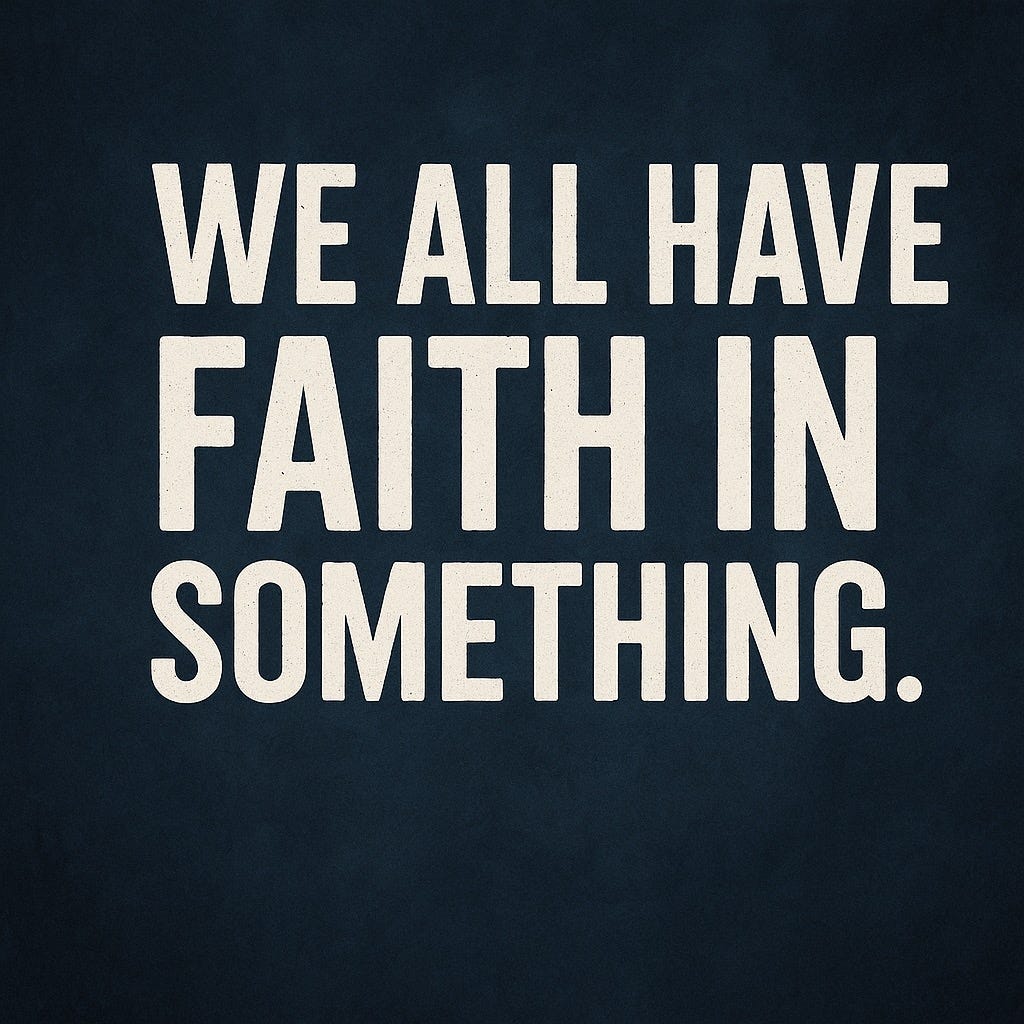We all have faith
Let’s be clear: no one escapes faith. The atheist who scoffs at “blind belief” has his own creed. He trusts his senses, though they can deceive him. He trusts logic, though his worldview cannot ground it. He trusts that tomorrow will mirror today, though he has no guarantee beyond assumption. Faith is not optional; it is the operating system of human reason.
The difference is not faith versus no faith. It is what or whom we trust. One man places his faith in a universe that appeared for no reason and somehow generated minds that just happen to discover truth. Another places faith in an eternal Mind who designed reality to be intelligible. Which is more coherent?
Here is the fallacy of the skeptic’s boast: “I just believe in science, not faith.” Science itself rests on faith that nature is ordered, that our minds are truth-tracking, that logic holds universally. Those are not lab results; they are presuppositions. Every experiment presupposes what it cannot prove.
The real question is not whether you have faith. It is whether your faith collapses under scrutiny. Faith in chance, chaos, and uncaused order is trust without reason. Faith in God is trust that explains reason itself.
So the debate is not “people of faith” versus “people of reason.” It is rival faiths. And only one of them can actually account for why reason works in the first place.


